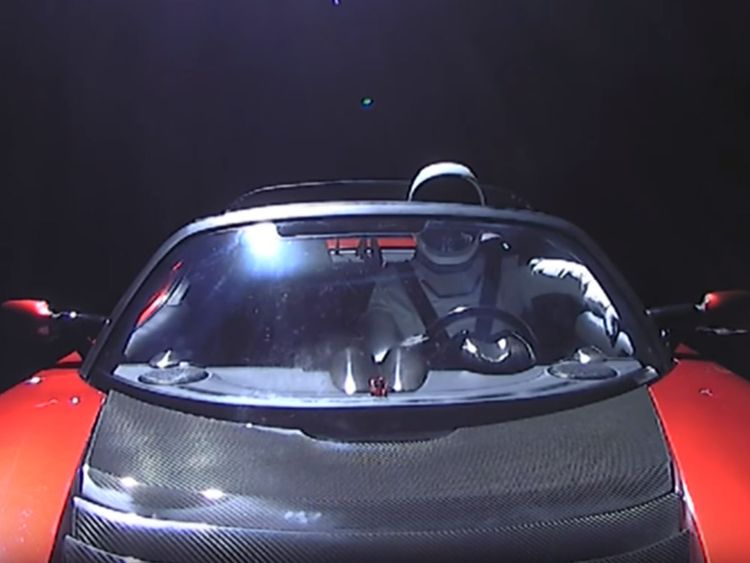SpaceX billed Elon Musk's Tesla Roadster as on "an endless road trip past Mars" when it launched in February.
However, the car and its pilot have now reached their farthest point from the sun before swinging back into orbit.
The Roadster has reached its first apogee from the sun according to the Where is Roadster? website, run by Ben Pearson, and as reported by technology news site Ars Technica.
While the Cape Canaveral launch of Elon Musk's Falcon Heavy – the most powerful in the world – was a big success, the red sports car overshot its touted mark for Mars.
Its orbit will bring it close to Mars – and to Earth – in two years' time, with it being at its closest to Earth at 51.7m km (32m miles) on 6 November 2020.
Rather than entering Mars' orbit, the Tesla looks to be on a long-term path towards the asteroid belt between Mars and Jupiter.
The website operator, Ben Pearson, told Ars Technica that although there haven't been any updates since March, there's no reason to suspect the data would mean the Roadster's location was more than a little off target.
A SpaceX livestream showed the car cruising through the Van Allen radiation belt in Earth's magnetosphere, with David Bowie's Space Oddity playing in the background and a note on the dashboard saying "Don't Panic".
Mr Musk, who wants to colonise Mars, said the approach was "kind of silly and fun, but I think that silly and fun things are important".

:: The Falcon Heavy is a space race game-changer
The 70-metre Falcon Heavy is powerful enough to carry a payload of 64 metric tons – twice that of its nearest rival – and because of the reusable boosters is also far cheaper – at about $90m per launch (£64m).
The next most powerful rocket, the Delta IV Heavy, can put about half as much in orbit for four times the price.
It may be the most powerful rocket in existence, but it is not the most powerful ever.
More from Elon Musk
Saturn V, which took astronauts to the moon, could handle more payload, as could the Soviet-era Energia.
Nevertheless, the successful test looks set to pave the way for far bigger commercial satellites being put into orbit.
[contf] [contfnew] 
Sky News
[contfnewc] [contfnewc]







